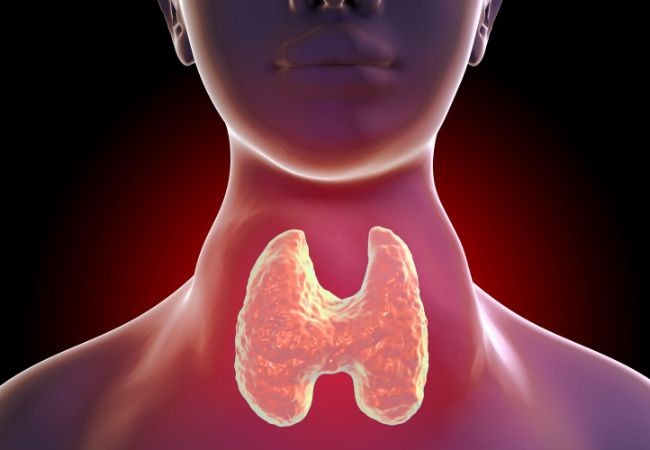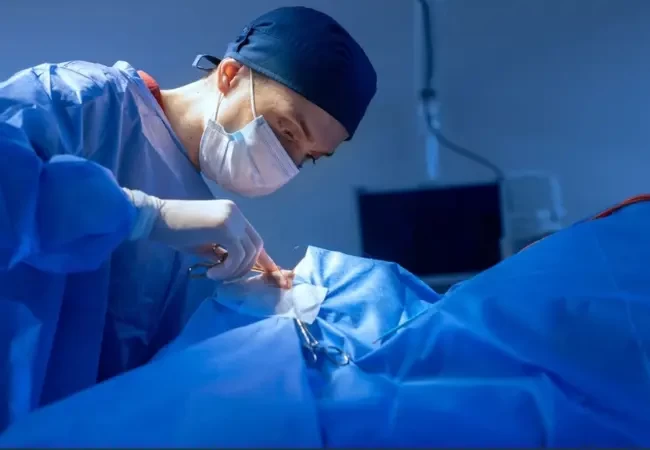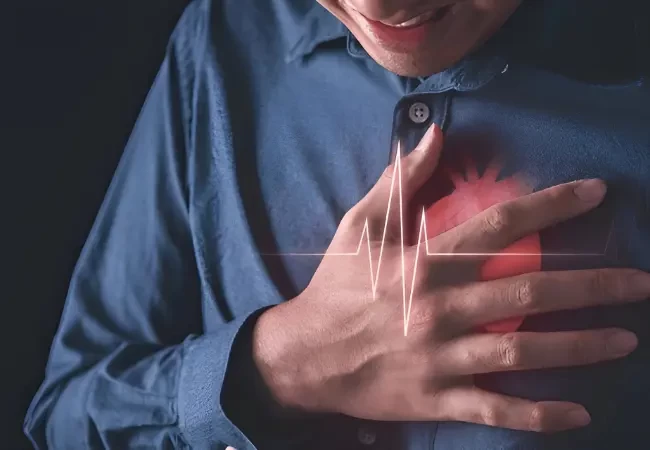 Medically reviewed by: Dr. Indu Elizabeth Mathew, Endocrinologist & Diabetologist - Written by Jasni Salim - Updated on 05/06/2024
Medically reviewed by: Dr. Indu Elizabeth Mathew, Endocrinologist & Diabetologist - Written by Jasni Salim - Updated on 05/06/2024Hyperthyroidism occurs when the body has too much thyroid hormone. This can happen because the thyroid gland makes too much hormone, releases too much hormone that was already made or gets hormone from another source. The main reasons for too much hormone production are Graves disease, toxic multinodular goiter, and toxic adenoma. Painless (silent) thyroiditis is a common cause of excess hormone release. It looks the same as other causes but does not cause pain. Hyperthyroidism can be cured due to proper treatment. If you read till the end, you will know the hyperthyroidism treatment and diagnosis in detail.
Doctors diagnose hyperthyroidism by asking about your health history, doing a physical exam, and doing blood tests. If the blood tests show signs of hyperthyroidism, you might need more tests to confirm the diagnosis which are as follows:
Medical History and Physical Exam: At the time of examination, your healthcare provider might check the following:
They will also check your thyroid gland by feeling it as you swallow to see if it is bigger than usual, lumpy, or tender.
Blood Tests: Blood tests measure the hormones T-4 and T-3, and thyroid-stimulating hormone (TSH) to confirm the diagnosis of hyperthyroidism. It is quite common to have a high level of T-4 and a low level of TSH in hyperthyroidism. Older adults might not show classic symptoms of hyperthyroidism thus blood tests are crucial for them. Taking biotin supplements can affect your thyroid blood test results. So tell your healthcare provider if you take biotin as you might need to stop 3 to 5 days before the test.
Radioiodine Scan and Uptake Test: You will be given a small dose of radioactive iodine to assess the activity of the thyroid gland. This will help determine if your thyroid is overactive due to Graves' disease, nodules, or leaking hormones.
Thyroid Stimulating Hormone Receptor Antibodies: This lab test can be used to confirm if the patient has autoimmune antibodies activating the thyroid gland which results in Grave’s disease.
Hyperthyroidism can be cured with the use of various treatments. Doctors will consider your age, health, and hyperthyroidism causes and severity of your condition. Even your own personal preferences will be taken into consideration as you and your healthcare provider decide on a treatment package. The treatments for hyperthyroidism are as follows:
There are other medications that will not directly affect your thyroid hormone levels, but they can help you feel better. These medications will help you to ease your symptoms like shakiness, rapid heartbeat, and fluttering in your chest. Doctors might prescribe them to reduce your symptoms until your thyroid hormone levels return to normal. However, these medications are not usually recommended for people with asthma, and they can sometimes cause tiredness or problems with sex life.
These medicines will help you to ease symptoms of hyperthyroidism slowly by stopping the thyroid gland from producing too many hormones. They include methimazole and propylthiouracil. You should start feeling better within a few weeks to months after starting treatment.
Treatment with anti-thyroid medicine usually lasts 12 to 18 months. After that, the dose might be reduced or stopped if symptoms improve and blood tests show that thyroid hormone levels are normal. Some people will stay in remission after this treatment for a long time, but others might get their hyperthyroidism back.
Liver damage is rare but it can happen with both anti-thyroid medications as side effects. Propylthiouracil has been linked to more cases of liver damage than methimazole. Thus, it is usually only used when methimazole is not an option. Some people might be allergic to these medications, which can cause skin rashes, hives, fever, or joint pain. These medications can also increase the risk of infection.
Radioiodine is a treatment where the thyroid gland will absorb a special type of iodine. This causes the gland to shrink. The treatment is taken by mouth. Symptoms will usually improve within a few months. However, this treatment will often slow down the thyroid too much which leads to hypothyroidism. As a result, you might need to take thyroid hormone replacement medication over time.
Thyroid surgery involves removing a part or all of the thyroid gland. It is not a common treatment for hyperthyroidism, but it might be considered for pregnant women or for those who cannot take anti-thyroid medicine or undergo radioiodine therapy.
At the time of this surgery, there is a risk of harming the vocal cords and the parathyroid glands. The parathyroid glands are four small glands located on the back of the thyroid. They play a role in regulating calcium levels in the blood.
After a thyroidectomy or radioiodine therapy, people usually will need lifelong treatment with levothyroxine (Levoxyl, Synthroid, or others). This medicine will provide the body with thyroid hormones. If the surgery removes the parathyroid glands, medication is also necessary to maintain a healthy level of calcium in the blood.
Hyperthyroidism is diagnosed by checking your health history, doing physical exams, and blood tests. Treatments include medicines, radioiodine therapy, and surgery. Each treatment has its own risks and benefits. You might need to take medicine for the rest of your life after treatment. Regular check-ups are important to monitor your thyroid. Knowing about hyperthyroidism causes and treatments will help you make good decisions about managing your hyperthyroidism and staying healthy.
EMC, the best hospital in Kochi specializes in hyperthyroidism and offers expert diagnosis and tailored treatment plans. We diagnose the condition carefully and create treatment plans that fit each person's needs. We will consider things like age, health, and what kind of treatment the person prefers. EMC will offer different treatments like medication, radioiodine therapy, and surgery. We are aiming to make sure that each person gets the right treatment for them to stay healthy in the long term. So reach out to us as soon as possible when you are in need.


Discover the truth behind common plastic surgery myths. Learn what's real, what's outdated, and how modern procedures truly work.

A step-by-step overview of GI surgery, covering what to do before surgery, what happens in the OR, and how to ensure a strong recovery.

Learn about cancer, its early signs, and prevention tips to lower your risk. Early detection saves lives—stay informed, take proactive steps, and protect your health.

Discover why a skilled pediatrician is essential for your child's growth, development, and overall well-being, from infancy through adolescence.

Discover how dermatology can help tackle acne, slow aging, and treat various skin conditions for healthier, more radiant skin.

Discover common childhood allergies, their symptoms, and management tips. Stay informed to keep your child safe and healthy.

Your liver plays a vital role in metabolism, digestion, immunity, and detoxification. Learn how liver health affects your body and ways to maintain its function.

Strong bones support your body and protect your health. Discover simple diet, exercise, and lifestyle tips to maintain bone strength at any age.

Discover the symptoms, causes, and treatment of hypertensive heart disease. Learn how high blood pressure affects your heart and when to seek medical care.

Learn about chest pain symptoms, causes, and treatments. Know when to seek medical help for a healthier heart.